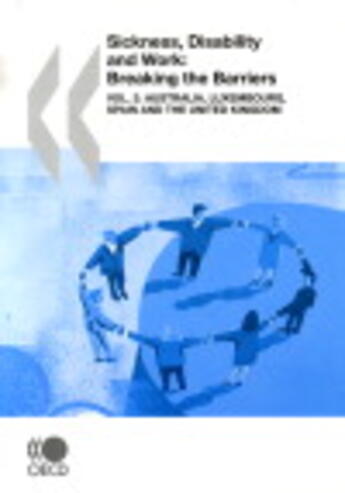-
Date de parution : 17/12/2007
-
Editeur :
Ocde
-
EAN : 9789264038158
-
Série :
(-)
-
Support :
Papier
Résumé:
oo many workers leave the labour market permanently due to health problems, and yet too many people with a disabling condition are denied the opportunity to work. This is a social and economic tragedy common to virtually all OECD countries, and an apparent paradox that needs explaining. Why is... Voir plus
oo many workers leave the labour market permanently due to health problems, and yet too many people with a disabling condition are denied the opportunity to work. This is a social and economic tragedy common to virtually all OECD countries, and an apparent paradox that needs explaining. Why is it that average health status is improving, yet more and more people of working age end up out of the workforce relying on long-term sickness and disability benefitsoe This second report in the OECD series Sickness, Disability and Work explores the possible factors behind this paradox. It looks specifically at the cases of Australia, Luxembourg, Spain and the United Kingdom, and highlights the roles of institutions and policies. A range of reform recommendations is put forward to deal with specific challenges facing the four countries. Experiences in the four countries offer some lessons on how to reduce inflows into sickness and disability benefits through good sickness management for the employed as well as the unemployed, and how to promote the transition from benefits into employment through well-timed, well-targeted, accessible and effective supports. Despite a range of good-practice elements, however, in all four countries more can be done to avoid the flow onto benefits and to move benefit recipients back to employment. Many people with health problems or reduced work capacity can work, and want to work. Helping those people to work is potentially a true 'win-win' policy: it helps people avoid exclusion and have higher incomes, at the same time as raising the prospect of higher economic output in the long term.
Donner votre avis














